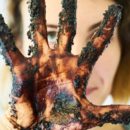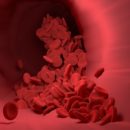Thought Control & OCD (Obsessive-Compulsive Disorder)
OCD & Thought Control Can I learn to eliminate my OCD thoughts? I hear this question all the time from new patients who are searching for ways to suppress their unwanted thoughts. When I answer this question with a resounding “no”, there is often much surprise and grief. After all, this is why they’re coming to see me. Many people with Pure-O OCD imagine thought control to be the only way to improve the quality of their lives. Unfortunately, thought control conceptualized in this way is not an attainable goal in OCD treatment. Our brains just don’t work like that. I explain it like this, “A penguin obsessed with flying is an unhappy penguin.” Expecting thought control to work is a little bit like a penguin flapping its wings and expecting to fly. It may work for the other...
Read MoreFear of Saliva Swallowing & Choking: Treatment & Symptoms (OCD)
Question: I have sensorimotor OCD, and I’m suffering from conscious swallowing. My main fear is that I’ll choke or swallow my own saliva whenever I’m speaking or singing. Any tips for how to tackle this fear via exposure and response prevention (ERP)? Great question. Consistent with general exposure and response prevention (ERP) principles, your exposures need to address your specific feared outcomes. Feared outcomes can vary greatly for individuals with the same presenting problem. I discuss this idea in a different context here: feared outcomes in OCD. For people with a fear of swallowing or drinking saliva, there are several possibilities. Fear of Potential Embarrassment: Social Anxiety If you are afraid of potential embarrassment due to coughing or choking while speaking, your symptoms might actually reflect underlying social anxiety (rather than somatosensory OCD). However, it’s also possible for social...
Read MoreReassurance Seeking in OCD
Although contamination OCD and washing rituals often go hand-in-hand, many rituals in this domain do not actually involve cleaning or disinfecting. These more subtle rituals are often based around reassurance seeking behaviors that become ingrained in everyday habit. In the context of exposure and response prevention (ERP), reassurance seeking OCD rituals are just as important to address as washing rituals. If you resist washing rituals but continue to engage in reassurance seeking rituals, your recovery will eventually stall (or perhaps never get started at all). Do you believe that knowledge is power? Do you aspire to optimum health? Do you believe that an ounce of prevention is worth a pound of cure? If so, you may be vulnerable to reassurance seeking rituals. Information-Seeking vs. Reassurance Seeking Reassurance seeking rituals involve mentally preparing for potential threats. These compulsions are often...
Read MoreOCD & Contamination: Washing & Cleaning Compulsions/Rituals
OCD: Common Compulsions In my last post about OCD, I discussed reasons why people do rituals. This time, I’ll identify specific rituals that are common in obsessive-compulsive disorder (OCD) characterized by a fear of germs, contamination, diseases, and other health-related ills. OCD: Hand-washing Rituals/Compulsions Hand-washing is a very common ritual and typically involves prolonged and frequent hand-washing behaviors. These washing behaviors may involve a particular sequence, order, or rhythm. Some individuals count while washing or wash in multiples of particular numbers. If these washes are interrupted, the individual may feel the need to repeat the entire sequence to make sure that the wash has been performed “properly.” Although people with OCD may think that their washing rituals are primarily for hygienic reasons, the true function of washing rituals is to reduce feelings of distress, anxiety, doubt, and vulnerability. The...
Read MoreOCD & Contamination: Reasons Why People Do Rituals/Compulsions
In my last post, I identified several idiosyncratic feared outcomes in OCD that are associated with contamination/health-related obsessive-compulsive disorder (OCD). Obsessions are intrusive, recurrent, and distressing thoughts, impulses, or images related to these feared outcomes. Today, I’ll discuss the function of compulsions. Why do people with OCD do rituals? Compulsions, or rituals, are the other main feature of OCD. These physical and/or mental behaviors reduce the anxiety brought on by obsessions and reflect one’s attempt to avoid, reduce, or prevent certain feared outcomes from occurring. Ask someone with a fear of contamination, disease, illness, or germs why they ritualize; and they will likely tell you that rituals serve as a means to destroy, neutralize, or escape from potential pathogens. As a consequence, rituals common to health-related OCD often incorporate washing, cleaning, disinfecting, and sanitizing behaviors. Excessively long OCD-driven shower...
Read MoreOCD & Contamination Fears: Feared Outcomes (Example: HIV/AIDS)
In my last post, I identified several types of obsessions that are associated with contamination/health-related obsessive-compulsive disorder (OCD). These include the fear of: Germs and getting sick. Making others sick. Developing an incurable illness in the future. Experiencing extreme and uncontrollable disgust or distress. Other unwanted negative outcomes related to the spread of germs, contaminants, or other agents. Given the idiosyncratic nature of obsessive-compulsive disorder (OCD), I thought it would be useful to talk a bit more about feared outcomes. Feared outcomes can be very different for different people, even when you’re dealing with the same surface obsession. Moreover, sometimes the immediate feared outcome (getting sick) differs from the ultimate feared outcome (dying from a disease). Consider the OCD fear of being infected with HIV. Individuals who experience this health-related OCD obsession often experience distress related to very different...
Read More








